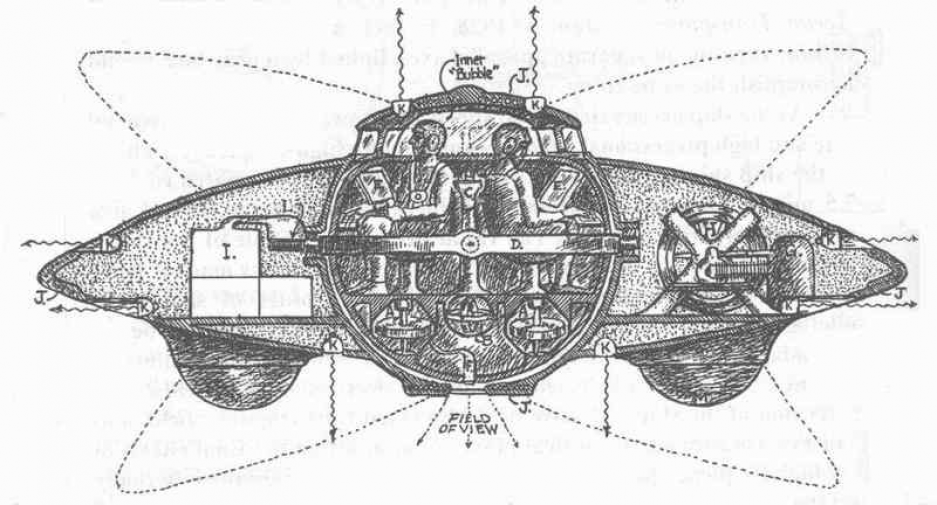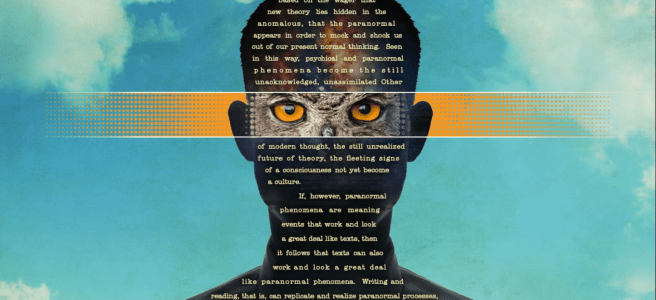Here, I continue my commentary on the plenary sessions of Rice University’s Archives of the Impossible conference. My notes on Jeffrey Kripal’s opening remarks and Jacques Vallée’s keynote address can be read, here, while those on Diana Pasulka’s plenary address are viewable, here.
Friday, I missed Leslie Kean’s plenary talk, “Physical Impossibilities: From UFOs to Materializations”, but I was eager to catch Whitley Strieber’s, not only because of his reputation, but moreso because he has co-authored a book with Jeffrey Kripal, The Super Natural.
Strieber, being a writer, delivered a relatively eloquent talk, in a mellifluous, cadenced voice. He began, after a series of gracious, thoughtful acknowledgements, confirming the notion Jeffrey Kripal laid out yesterday, that the paranormal is a unified field, underlining the unity of the Visitor experience and the mystery of death, stressing the phenomenon demands to be approached “holistically” and interdisciplinarily.
The body of his discourse was the presentation and analysis of one of the many letters he and his wife received in the wake of Strieber’s publishing Communion, a large number of which are now housed in the Archives of the Impossible. Strieber proposed to read the story the letter related according to the myth of Ariadne, Theseus, and the Minotaur: the role of Theseus is played by the family who experience an encounter with the Visitors; the Labyrinth is our dark, confused world; the Minotaur is fear and anger; Ariadne is the consciousness behind and controlling the Visitor experience; and the thread, the process of human perception, the way it domesticates the wildly strange, tempering fear with curiosity. He managed to unfold the letter’s account according to his proposed schema in an easy to follow manner, however unconvincing….
What struck me was Strieber’s stressing how the Visitor experience “is a communication of a kind”, related to the myths of all cultures. Indeed, it’s because Strieber perceives this link between the experience and myths that he ventures to read the letter the way he does, going as far as to claim that an acquaintance with myth is necessary to understand Contact and “the grammar of Communion.” In this regard, Strieber seems to echo Vallée’s contention in his keynote address, that the phenomenon “is not a system but a metasystem”. Someone not unfamiliar with the developments of last century’s literary theory might say it is a language (myth).
Ironically, however much Strieber is at pains to stress the pertinence of our mythological inheritance in understanding Contact, his own acquaintance with the myth he deploys is weak. It’s not the case that Ariadne saves Theseus from the Minotaur by guiding him out of the Labyrinth with her thread, but that her thread enables him to navigate the Labyrinth in order to slay the Minotaur and emerge again. Strieber is correct that Theseus abandons Ariadne after his exploit, but says that she weds Dionysus “the god of joy” and thereby becomes holy, a becoming holy (whole, complete), Strieber maintains, being the “inner aim of Contact”. But by what warrant does Strieber identify Dionysus/Bacchus with “joy”?…
Not only does he betray only a loose acquaintance with the myth he would employ, but, I would argue, he confuses myth with myths. That is, if the Visitor/Contact phenomenon operates at a mythological level, from the point of view of structural mythology, it is not because of how its various narratives might echo other narratives, but because of its structure, which is that of myth. Myth, like language, is a form not a substance. He does seem to unconsciously grasp this approach, when he draws attention to various actions in the letter he analyzes (and, no!, he does not “deconstruct” it!) when he remarks various actions that occur along the vertical axis: one Visitor leaps from a water silo, they appear in the trees, the family ascends to the second story of their home to get a better view of the beings, etc., an observation typical of a structural analysis of myth or narrative. Strieber’s exegesis of the letter is illuminating but, ironically, despite the allegorical machinery he brings to bear….
One must wonder, too, if he were present during Vallée’s presentation and his warnings concerning the truths intelligence agencies relate, as Strieber at one point emphasized how the U.S. government recently admitted that the leaked Tic-Tac and Gimbal videos depicted vehicles of unknown origin….
So, like Jacques Vallée’s keynote address, Whitley Strieber’s contribution, though smoothly delivered and containing some provocative insights, fails to persuade because of, ironically, its weak grasp of essential aspects of its own argument, here the very myth he would use to construct his discourse, if not mythology as such itself….


Bryan, thank you for your very helpful summaries of the presentations. I was very impressed by Strieber’s talk, in that he tries to find meaning what appears at first sight a jumbled and incoherent narrative, and–allowing for the errors you note in his recounting of the myth, which I have to admit I didn’t catch–achieves a fair degree of success.
If the narrative in question were, say, a medieval legend, I think many scholars of such traditions would say: yes, Strieber’s is indeed a useful interpretation, even if we need to modify or altogether transcend it. But there is the added complication that it is an account of allegedly true events in the very recent past, by one of the experiencers (who invokes the witness of other experiencers). There do not seem to be grounds for supposing deliberate deception. What experiential reality are we to suppose for it? Is it possible that the experiencer’s subsequent illness, whose nature remains unclear, evoked in her a string of hallucinatory memories, perhaps triggered by the incident of the unknown headlights? What are we to make of their being shared by her children and (apparently with some reservations) her husband? (On the visitors in the trees, compare the 1683 report of Abraham Cardozo, in “Intimate Alien,” p. 51, who also fell gravely ill in consequence of his experience.) These seem to me very important questions, and I am indebted to Strieber for having stimulated them.
Now I want to read the rest of the Strieber letters in the archive …
LikeLike
David, thanks for chiming in. I’m sorry you were unable to attend the conference in person, and I regret not yet having had a chance to read carefully your own (remote) contribution to the proceedings.
You surely raise and important question. If one assumes the sincerity of the correspondent and yet finds the experience related unbelievable if not impossible, then one is faced with a contradiction. That the correspondent’s illness suggests some potential explanation (at least to this layperson), its communal character and, I object, relative coherence pose an added complication.
Of course, the “truth” of the letter most emphatically does not _depend_ upon its narrative’s reference, and the assumption that language is essentially anchored to reality in this way is a pernicious assumption, much at work in the thinking of Strieber and Vallée. It is for this reason, and to make more out of the letter than even Strieber, that I bracket any question of the letter’s veracity to focus on the workings of its meaningfulness.
That the events the letter relates never underwent an on-site investigation is germane, indeed. The lack of such forensic labour is precisely what, contra Anne Strieber, renders the testimonies of the letters anecdotal, en masse. At any rate, we are left with a mystery if not conundrum, which, after all, is the theme of the conference and collection!
LikeLike
Bryan are you zooming in? I have found it impossible to connect in after Thurs. evening trying mulitiple pcs and phone in.
LikeLike
Robert, weird. I had one problem at the beginning of Strieber’s talk last night, that as likely may have been on my end.
Here’s the most recent registration link I was sent Thursday: https://riceuniversity.zoom.us/webinar/register/WN_K7t-FwLZRqCyeBRjaIrALg
Good luck!
LikeLike
Thankd for the link! I notice in this registration that the first session is show as at 3:30pm yet according to the schedule there have been sessions since this morning. Have you been in the morning sessions?
LikeLike
Folks attending remotely can “attend” only the plenary sessions…
LikeLiked by 1 person